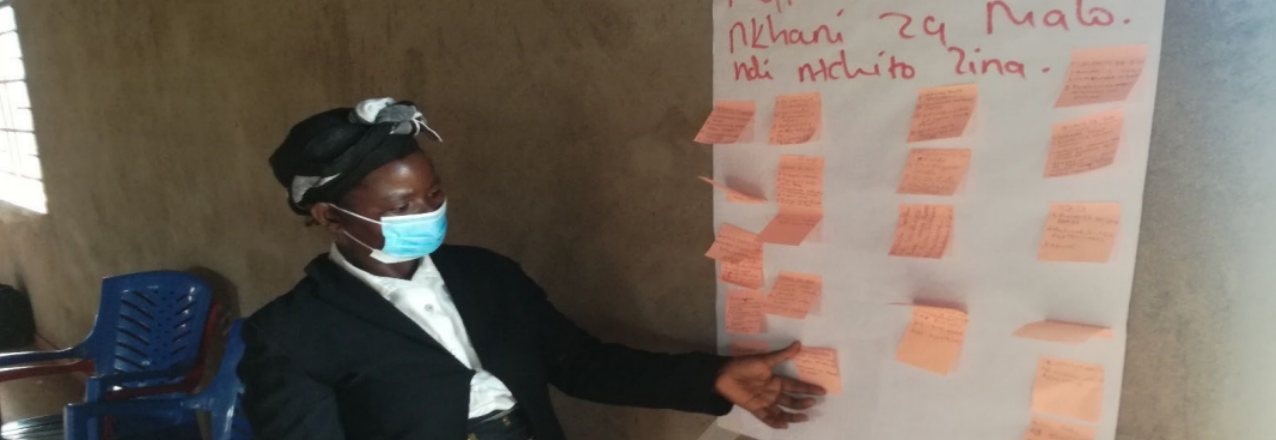About the Manual
The Manual is intended to serve as a guide for facilitating a dialogue process with traditional leaders on gender norms related to land governance. The approach is highly adaptable to different regions in Malawi and can be tailored to different literacy levels and contexts (patrilineal and matrilineal areas, for instance). This Manual should be seen as a ‘living document,’ and facilitators are encouraged to note where improvements can be made to render the modules more dynamic and engaging.
The Manual is based on practice and field experience rather than theory. It is designed to encourage traditional leaders to reflect on the situation actively (through reflective learning, interactive facilitation, group work, and experience sharing) and to challenge themselves to bring about change. The facilitation is based on important adult learning principles, including:
- Adaptation: All material should be presented in the most appropriate language for the audience. If the audience has low literacy, utilize images over words and adjust the program to allot more time for learning in the sessions.
- Respect: Regardless of the attendees’ educational levels or background, show respect by listening intently, avoiding interrupting, and valuing individual contributions.
- Dialogue: For constructive dialogue to happen, dialogue leaders should see themselves as facilitators, not teachers or lecturers. The emphasis should be on facilitating reflection within each group and exchanges among groups to enhance learning.
- Engagement: Facilitators must pay attention to the level of engagement of all indunas/head persons. If only a few people are dominating discussions, find ways to invite others without being overbearing, such as through small group activities or by inviting the perspective of those individuals who have not been active.


